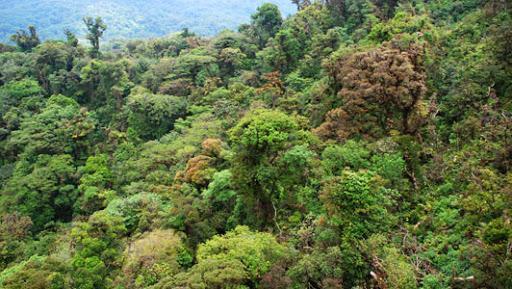
10 Factors Affecting Vegetation In Nigeria
Factors Affecting Vegetation In Nigeria – Nigeria is a country located in West Africa, known for its diverse and rich vegetation. The country’s vegetation varies greatly depending on the region and can be broadly categorized into three main types: tropical rainforests, savannas, and wetlands. The south region of Nigeria is characterized by its lush tropical rainforests, which are home to a wide variety of plant species, including oil palm, rubber, and cocoa trees.
The savannas in the north and central regions of Nigeria are characterized by tall grasses, thorn bushes, and acacia trees. Wetlands, such as mangrove swamps, are also present in some parts of Nigeria. The vegetation in Nigeria supports a wide variety of wildlife and is an important source of food, medicine, and other resources for local communities.Factors Affecting Vegetation In Nigeria
👉 Relocate to Canada Today!
Live, Study and Work in Canada. No Payment is Required! Hurry Now click here to Apply >> Immigrate to CanadaRead Also: 10 Factors Affecting Valuation Accuracy In Nigeria
What is Vegetation?
Vegetation refers to plant life in a particular area or region. It includes all types of plants, such as trees, shrubs, herbs, and grasses. Vegetation can be described based on its structure, composition, and distribution, and it plays a crucial role in maintaining the ecological balance of an ecosystem.
Forms of Vegetation in Nigeria
Nigeria has a diverse range of vegetation, including:
1. Rainforest:
found in the southern region of the country, characterized by high rainfall and a wide variety of plant and animal life.
2. Mangrove Forest:
found along the coast, characterized by salt-tolerant trees and shrubs that can survive in the brackish water of the coastal wetlands.Good Morning Love Message
3. Savannah:
found in the middle belt of the country, characterized by grasslands with scattered trees and bushes.
4. Dry Forest:
found in the northern region, characterized by low rainfall and drought-resistant plants.
5. Swamp Forest:
found in the delta regions, characterized by water-logged soils and a wide variety of plant and animal life.
👉 Relocate to Canada Today!
Live, Study and Work in Canada. No Payment is Required! Hurry Now click here to Apply >> Immigrate to Canada6. Montane Forest:
found on the Jos Plateau, characterized by cooler temperatures and a wide variety of plant and animal life.
Read Also: 10 Factors Affecting Utilization of Maternal Health Services in Nigeria
Advantages of Vegetation in Nigeria
Vegetation in Nigeria provides a variety of benefits, including:Information Guide Nigeria
1. Erosion Control:
Plants and trees help to stabilize soil and prevent erosion, particularly on slopes and in areas prone to heavy rainfall.
2. Climate Regulation:
Vegetation helps to regulate local temperatures and weather patterns, and can also help to reduce the urban heat island effect in cities. JAMB Portal
3. Biodiversity:
Vegetation provides a habitat for a wide variety of plant and animal species, helping to promote biodiversity and ecosystem health.
4. Economic Benefits:
Vegetation in Nigeria provides a variety of economic benefits, including food, medicine, timber, and other products.
5. Recreational and Aesthetic Benefits:
Vegetation in Nigeria can enhance the beauty of the landscape and provide opportunities for outdoor recreation and enjoyment.
6. Carbon Sequestration:
Vegetation plays a significant role in absorbing carbon dioxide from the atmosphere, helping to mitigate the effects of climate change.
Read Also: 10 Factors Affecting Mobility of Labor in Nigeria
Demerits of Vegetation in Nigeria
There are several demerits of vegetation in Nigeria, including: NYSC Portal
1 Deforestation:
Nigeria has a high rate of deforestation due to illegal logging, agricultural expansion, and urbanization. This has led to the loss of biodiversity and habitat destruction for many species.
2. Soil Erosion:
Deforestation also leads to soil erosion, which can cause landslides, flash floods, and other natural disasters.
3. Climate Change:
The destruction of vegetation in Nigeria also contributes to climate change, as trees and other plants help to absorb carbon dioxide and other greenhouse gases from the atmosphere.
4. Loss of Medicinal Plants:
Many traditional medicinal plants are found in Nigeria’s forests and savannahs, but as these areas are destroyed, these plants are becoming increasingly rare.
5. Loss of Livelihoods:
Many rural communities in Nigeria rely on the land for their livelihoods, including farming, hunting, and fishing. The destruction of vegetation can have a severe impact on these communities, as it reduces their access to resources. Breaking news: Lampard back to Chelsea?
6. Reduced Water Supply:
Loss of vegetation in Nigeria can lead to reduced water supply, as trees and other plants help to regulate water flow and prevent soil erosion. This can lead to water shortages and an increased risk of flooding.
Read Also: 10 Factors that Influence Localization of Industries in Nigeria
The Impact of Vegetation and the Nigerian Society
Nigeria is located in West Africa and has a diverse range of vegetation due to its varied climate and topography. The country can be broadly divided into three regions: the coastal swamp forests in the south, the derived savannah in the middle, and the rainforests in the southeast and southwest.
The coastal swamp forests are characterized by mangrove trees and other species that can tolerate the salty conditions of the coastal region. The derived savannah is a grassland that has been created as a result of human activity, such as farming and logging. The rainforests in the southeast and southwest are home to a wide variety of plant and animal species.
In the past, Nigeria had a much larger area covered by forest, but over the years, deforestation has occurred as a result of human activities such as logging, farming, and urbanization. This has led to the loss of biodiversity and negative impacts on the environment. Efforts have been made to address this issue, such as reforestation projects, conservation of protected areas, and sustainable land use practices.
Factors Affecting Vegetation in Nigeria
Several factors can affect vegetation in Nigeria, including:
1. Altitude:
The altitude at which vegetation grows affects the types of plants that can survive in an area, as some plants may not be able to tolerate high elevations.Romantic Love Messages
2. Water Availability:
The availability of water affects vegetation, as some plants require more water than others to survive.
3. Fire:
Wildfires can have a significant impact on vegetation, as they can destroy large areas of forest and grassland.
4. Light Intensity:
The intensity of sunlight affect vegetation, as some plants may require more or less light to survive.
5. Nutrient Availability:
The availability of nutrients in the soil affects vegetation, as some plants require specific nutrient levels to grow.
6. Human Population Density:
The density of human populations affect vegetation, as areas with high population densities may experience more deforestation, urbanization, and other human activities that alter the natural environment.
7. Land Use:
The way land is used, such as for agriculture, mining, or urban development has a major impact on vegetation.
8. Natural Disturbances:
Natural disturbances such as landslides, volcanic eruptions, and earthquakes also affect vegetation, as they can cause widespread damage to the natural environment.
Read Also: 10 Factors Affecting Contraceptive Use in Nigeria
9. Climate Change:
Climate change affects vegetation, as changes in temperature, precipitation, and other weather patterns alter the natural environment. Duties of A Domestic Violence Counselor
10. Human-induced Climate Change:
Human activities such as burning fossil fuels and deforestation cause changes in the climate which affect vegetation.
Conclusion
Nigeria has a diverse range of vegetation, including tropical rainforests, savannas, and mangrove swamps. The country is home to a wide variety of plant species, some of which are unique to Nigeria. However, the country’s vegetation is under threat due to human activities such as deforestation, overgrazing, and urbanization. Conservation efforts are needed to protect and preserve Nigeria’s unique and valuable vegetation for future generations.
Check JAMB RESULT
Check and Confirm: How much is Dollar to Naira







